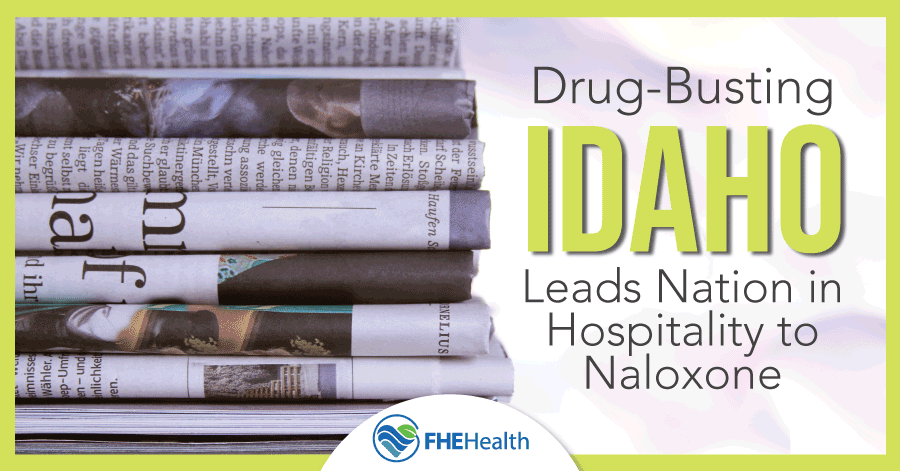
According to the National Institute of Drug Abuse, in 2017 (the most recent year for which there are drug-related fatality stats) the state of Idaho saw 103 deaths from opioid overdoses at a rate of 6.2 deaths per 100,000 persons. While this rate is significantly better than the national rate of 14.6 deaths per 100,000 persons, it’s clear that Idaho hasn’t been able to escape the opiate epidemic completely.
Drug Busting Efforts in Idaho
Drug dependencies not only impact road safety and cause fatalities but also lead to an increase in crime, as users need money to keep up their drug habit. Law enforcers find themselves busier than ever in busting major drug rings around the state.
A recent drug bust in Azalea near Edgemont Elementary School in Idaho Falls saw three people placed under arrest and charged with drug possession. The Idaho Falls Police Department and the sheriff’s office jointly investigated and applied for a search warrant of the property.
In a breakthrough for drug-busting efforts in the state, 13 people were placed under arrest in Elmore Country on drug charges in April. Authorities believe one of the arrested was a major drug dealer in the local region.
The combination of prescription painkillers and heroin use causing deaths and overdoses across the state has led to an increase in seized drugs and arrests.
Anyone caught with two grams or more of heroin may face a minimum sentence of three years in jail and $10,000. Possession of higher quantities of drugs may result in life sentences.
Prescription Opioid Painkillers Taking Their Toll
While law enforcement officials focus on taking down dealers in drugs like heroin and fentanyl, an increasingly worrying trend shows people resorting to prescription painkillers to get high in the state.
Out of the 103 overdose deaths declared in the state in 2017, 63 resulted from prescription opioids— compared with fentanyl and heroin at 22 and 23 respectively.
For every 100 persons, providers wrote 70.3 opioid prescriptions, which is significantly higher than the 58.7 national average.
Opioid Overdose Prevention – Idaho Leads the Race Nationally
An antidote medication, naloxone, can reverse the potentially fatal effects of overdosing on opioids and was previously a prescribed drug only. But lawmakers in Idaho made changes to regulations, so that now any pharmacist or person who can prescribe medication may dispense the drug.
The regulation change in the state (one of the first to adopt it) saved several lives. Six companies across the United States produce approved naloxone products, the most popular of which is a brand known as Narcan. Although no significant side effects and safety concerns surround Narcan, only pharmacists and doctors can administer it.
The FDA is further undertaking efforts to make the antidote available for purchase without a prescription to further combat the overdose problem. This will make it significantly easier for family members, nurses, and first responders to administer naloxone for overdoses.
Changes to Idaho Law to Make Naloxone More Easily Available
The previous law seemed to indicate that only doctors and pharmacists could administer and distribute naloxone. But lawmakers then passed a bill so that any licensed or registered health professional can prescribe opioid antagonists. This unanimously passed through the House and Senate.
Under the new law, nurses, social workers and any other licensed or registered health professionals can administer the antidote if they believe a person needs it because of drug overdoses or abuse.
The change is a huge step forward, now that institutions can allow nurses to administer the antidote without fear of being held liable. The change also means that the state of Idaho offers the easiest access to opioid antidotes anywhere in the United States. Still, despite the best efforts of the state, there remain barriers to naloxone distribution and availability at the federal level.
The new law requires sweeping changes to address the legal status of naloxone and make it a proper over-the-counter drug, which means that any person can buy the antidote easily. No licenses are needed to access it in case of a drug overdose.
The FDA has even supported the cause to increase the availability of naloxone and has created sample drug fact labels to help users administer the antidote.
This is the first time the FDA took such a big step. These drug labels will speed up approval for naloxone as a true OTC drug. Until this happens, several authorities in the industry have applauded Idaho’s plan to broaden the number of people who can prescribe the antidote for drug overdoses.
Apart from changes to the law, better access to community addiction centers will help drug addicts find effective long-term solutions, so they can recover from their addictions and resume normal, healthy lives. Call us at (833) 596-3502 to help you on your path to recovery.






